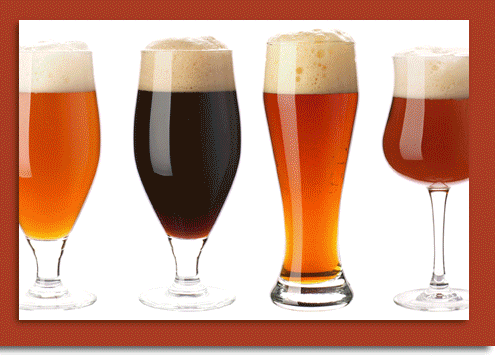BEER
ALL MAJOR BRANDS OF BEER SHIPPED TO YOUR DOOR
Malt
Brewing begins with raw barley, wheat, oats or rye that has germinated in a malt house. The grain is then dried in a kiln and sometimes roasted, a process that usually takes place in a separate location from the brewery. At the brewery, the malt is sent through a grist mill, cracking open the husks of the kernels, which helps expose the starches during the mashing process. The process of steep milling, or soaking the grain before milling, is also an option for large-scale brewers.
The combination of different types of grain used by a brewer to make a beer is often called the grist bill.
Mashing Brewing Beer, Mashing In
The first step in the beer-making process is mashing, in which the grist, or milled malt, is transferred to the mash tun. Mashing is the process of combining the grist and water, also known as liquor, and heating it to temperatures usually between 100 degrees Fahrenheit up to 170 degrees Fahrenheit. Mashing causes the natural enzymes in the malt to break down starches, converting them to sugars, which will eventually become alcohol. This process takes place in one to two hours. Mash temperatures can be gradually increased or allowed to rest at certain temperatures, choices which are very much part of the brewer’s art. Different temperature levels activate different enzymes and affect the release of proteins and fermentable sugars. Proteins play a smaller role but are important to the creation of foam in a finished beer. For heating, most brewers use steam.
Infusion vs. Decoction Mashing
Water is combined with the grist in one of two ways, infusion or decoction.
In infusion mashing, the grains are heated up in one vessel (the mash tun); in decoction mashing, a portion of the mash is transferred from the mash tun and boiled in a separate vessel (called the mash kettle), then returned to the original mash. Some brewers repeat this process to achieve double decoction and a few are known to use triple decoction. Brewing Beer, Wort
The liquid consisting of sugars and water resulting from mashing is wort.
(Note: For extract brewing, malt has already been processed into a concentrated syrup or powder consisting of milled grain, which is then combined with heated water to make the wort. This is a method most often employed by homebrewers, enabling them to by-pass the steps required for separating spent grain from the wort.)

















